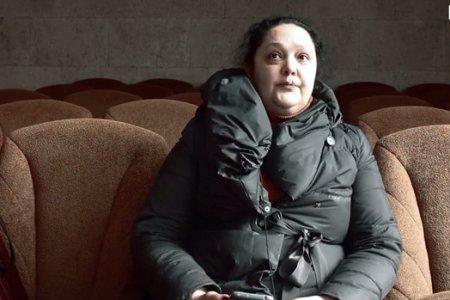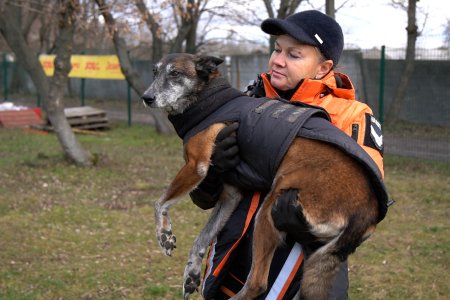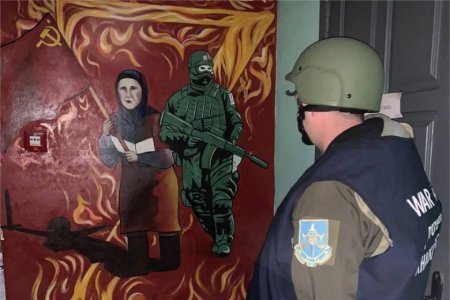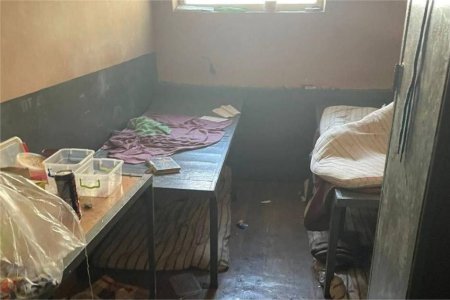On 24 February, a friend called, who was a little closer to the epicenter of events. The distance between us was 15 minutes on foot, but from the 16th floor, she saw how the war started as it all unfolded, explosions, everything. She called and told me that the war had begun, and they had already gone into the street. We also need to wake up and get ready. But I couldn’t believe it, and the explosions had not yet been heard behind the windows, so I did not immediately understand. And then I went to the kitchen window, and three seconds later, there was an intense explosion. I know that you are not locally oriented. It was the territory of the “Ocean”, and the garage cooperative was hit, causing my window frame to shake. I woke up my daughter and started getting ready. At about noon, we went to the bomb shelter at the school where my daughter studied. That was it — we no longer returned home to spend the night. At night, our defenders rearranged installations nearby. Planes flew by. Everything was deplorable.
However, we had a short break from 6:00 to 8:00 in the morning, and we had the opportunity to run home, feed the cat, and bring food — anything, some soup. We called this time “smoke breaks.”
6:00 am to 8:00 am, but that was tentative. At 6:00, we woke up and went outside. I don’t even know how to explain it correctly: when you are there, you somehow intuitively feel what is happening. You can even navigate by the sounds of nature: if a flock of birds flew by, somewhere missiles were flying, which meant that soon there would be shelling. If there were explosions, you understood where they are approximately geographically, what area, whether it’s ours or not. Three times from the side of Saltivka, the Russians broke through on armored personnel carriers. This was scary because they diverted attention, and the DRG [Sabotage and Reconnaissance Group] penetrated in the meantime. On 27 February, a breakthrough occurred at about 7:30 in the morning, and we ran back under automatic bursts. My husband ran with the child in his arms. All this was very close.
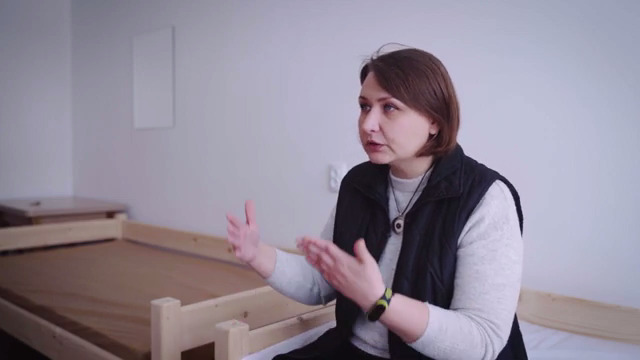
Have you witnessed casualties and destruction of civilian facilities?
Since the first of March, things have become more brutal. On the third of March, our micro-district experienced a strong attack. We live in the 33rd square of houses: there is a nine-story building (the # 33), then in the middle are five-story buildings — A, B, C, D, with E and F behind. And here is the school. One of the houses was hit during artillery attacks. The first time the shell flew in, we ran out to help people because a fire started. Then evacuation began. I looked at the time — twenty minutes had passed. I called everyone to the bomb shelter, but not everyone went. After the second hit, I had to pack four corpses in bags because an ambulance was supposed to come and pick up the bodies. They would have remained there if we had not had time to pack them.
There were always some explosions nearby. Since 1 March, our 531st micro-district has been constantly shelled.
From 3 March, after this shelling, as I understand it, we found ourselves in a vacuum because the connection was gone: there was neither the Internet nor mobile communications. And in the morning, it was no longer so safe to go home, but I had to; at least we took turns. It so happened that I went, but I could not even take food because the explosions were very close. I ran back and was thrown by the blast wave. I hit my head very hard. There were no other injuries, only an intense ringing in the ears, and that’s it. My classmate got hurt (in April). This information reached the whole world: Mykola’s chest was torn apart, and his child was thrown onto the entrance overhang.
Have you had difficulty accessing food?
The bread was gone, and food was no longer delivered to Saltivka. Only sweets remained in the ATB market. There were no products except for sweets: candies, chocolates, and sweet soda. There was nothing to buy. At our school, children were fed once a day. Catering was organized because there was a kitchen and a dining room, so cooking something for the children was possible. The boys boiled the water. We had a very well-coordinated team at the school. The director competently organized everything. The boys (eleventh graders) created a “coordination center” in the basement; they had computers there, surrounded by the plywood fence. They received messages when the petal mines were scattered. Beacon icons marked the spots. They ran to neutralize the mines whenever possible.
We have fearless guys. Even when a shell hit this new home, they were among the first to bring help. They had professional stretchers in the basement. Incredible fellows!
Although they are 17 years old, they endured everything with dignity and courage. There was such a significant moment: we finally left Saltivka and arrived at the Central Station. Men were not allowed on the train, and the husband was on the street. He stayed with our daughter, and I went to charge the phone. Perhaps I had a sorrowful face because a woman approached me and asked: “Poor thing, where are you from?” — “From Saltivka.” — “Is everything so bad there?” When we passed the territory of the Barabashovo market, there was a completely different life there. People didn’t feel the war so strongly. They walked with the dogs. They heard explosions, but they didn’t get as much fire. On 4 March, in the morning, the connection was lost entirely. There was neither Life nor MTS, and only Kyivstar [ Mobile operators in Ukraine] was available in places.
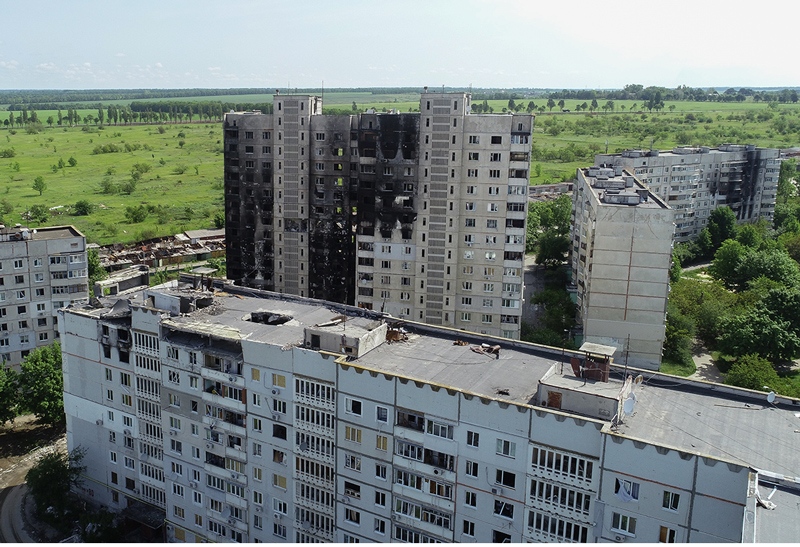
How was your evacuation from the city?
We were lucky. In March, the were gasoline shortages in Kharkiv. Most of the people left. Those with cars who stayed had no more gasoline. Miraculously, a man (a taxi driver) took us out under shelling. It was an ordinary car. When we slept at school, we had a small square: three chairs and a mattress. A little further — a woman with an 18-year-old daughter. They tried to find acquaintances who would help us all to leave. Similarly, we were looking for an opportunity to leave with them. The girl Dasha managed to find a driver, he arrived, and it so happened that they sat in the back, and we with the cat in front. We began to drive through the yards to the street of Hvardiitsiv Shyronintsiv and drove out near the “Ocean”.
The car turned around, and the driver and I looked and saw a rocket flying. And you know, that feeling...
You don’t know where it’s going — either in the house, or on the road, or the car. We breathed in, and so we went all the way to Barabashova. He patted me on the knee, like, “Yes, everything is fine,” and I exhaled. We arrived at the station. We got into an evacuation train but did not know where it was going. We just boarded and went into the unknown. Halfway through, it turned out that the train was going to Vinnytsia. As soon as the train arrived, the airport was shelled the same day. We realized that we would not stay there and drove on.
How did your daughter react to these events?
On the 24th, when I woke her up, she thought we were going to school. She has a bunk bed: on the first tier — a table, and the second — a bed. She went downstairs to prepare, but I said: “No, come, please, we need to talk.” I explained to her that the war had begun and explained what we were doing. I told her we must pack now and go to the bomb shelter. “Think about what you want to take with you.” She had a toy, a dog-ball, and she cared for it. I asked her to take the dog. A psychological trick so that she cares for someone and won’t think about what is happening now. She is my steadfast tin soldier [allusion to “The Steadfast Tin Soldier” book by Hans Christian Andersen]
The children cried a lot and stuttered. Especially when there were night attacks, they were very loud.
The plaster fell. The children peed and cried very loudly. After 22:00, they gave out one chair per person so everyone had enough space to sit down. If there were extra chairs, they could be used. We had three chairs for three. I built a corner for my daughter under these chairs and put them in a row. During the day, she used a school chair, and at night she crawled under our three because stones fell from concrete slabs. They were like gravel. The structure of these blocks was such that it could severely cut heads.
We had neighbors: the father had an orphan from his second marriage and two children from his first. We hid together. This girl Kseniia had her head severely cut. From vibration and impact, a huge piece fell and cut her head. After this shelling, I also had a head injury. Later, on 24 March, I realized what had happened. At first, I thought I was poisoned, but I had a hemorrhagic stroke. I had to have an operation urgently. They sent me to Uzhhorod, and I had two trepanations and became deaf in my left ear. There are a lot of consequences: outwardly, it is not visible, but the problems remain.
Do you plan to return home after the end of the war?
Many different things happened, and it seems you can’t tell everything in a day. Some memories are erased on purpose because we want to keep going. What do they say? It won’t be like before. But it is not necessary — as before. It needs to be better. Let Kharkiv be destroyed, but we will restore it. It will get even better. Everything will be better.
 The article was prepared by the Kharkiv Human Rights Protection Group with the support of the "
The article was prepared by the Kharkiv Human Rights Protection Group with the support of the "